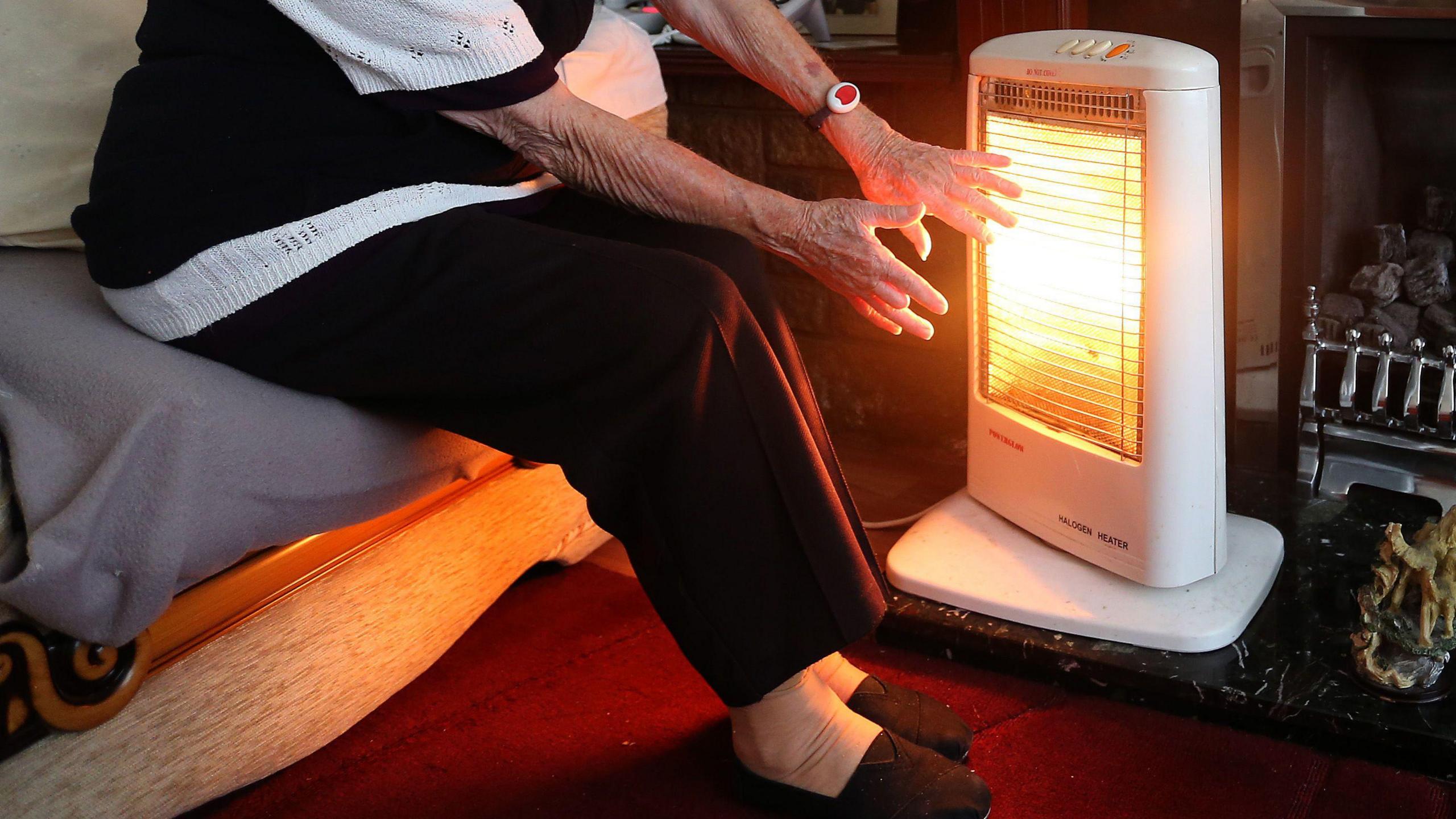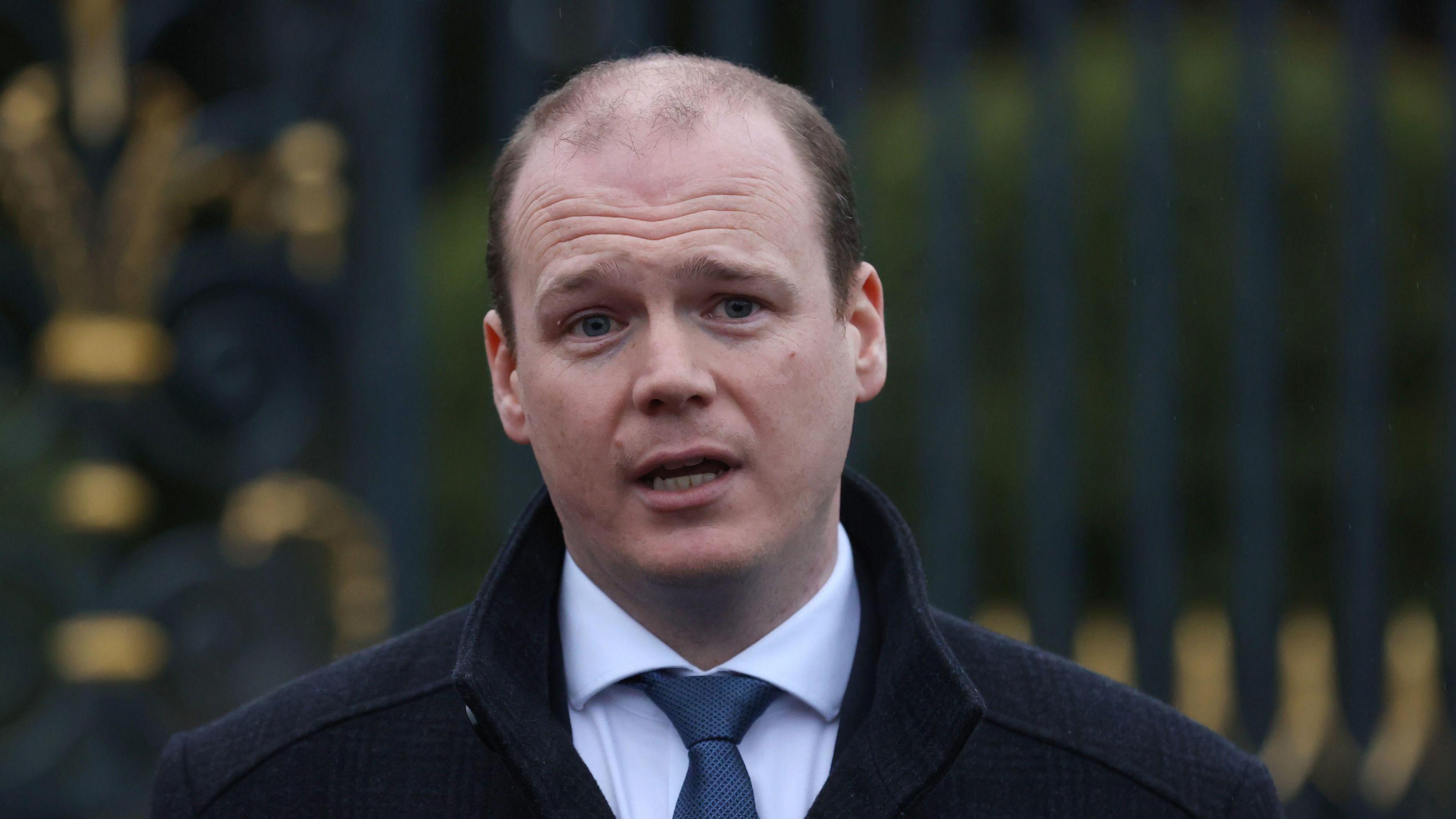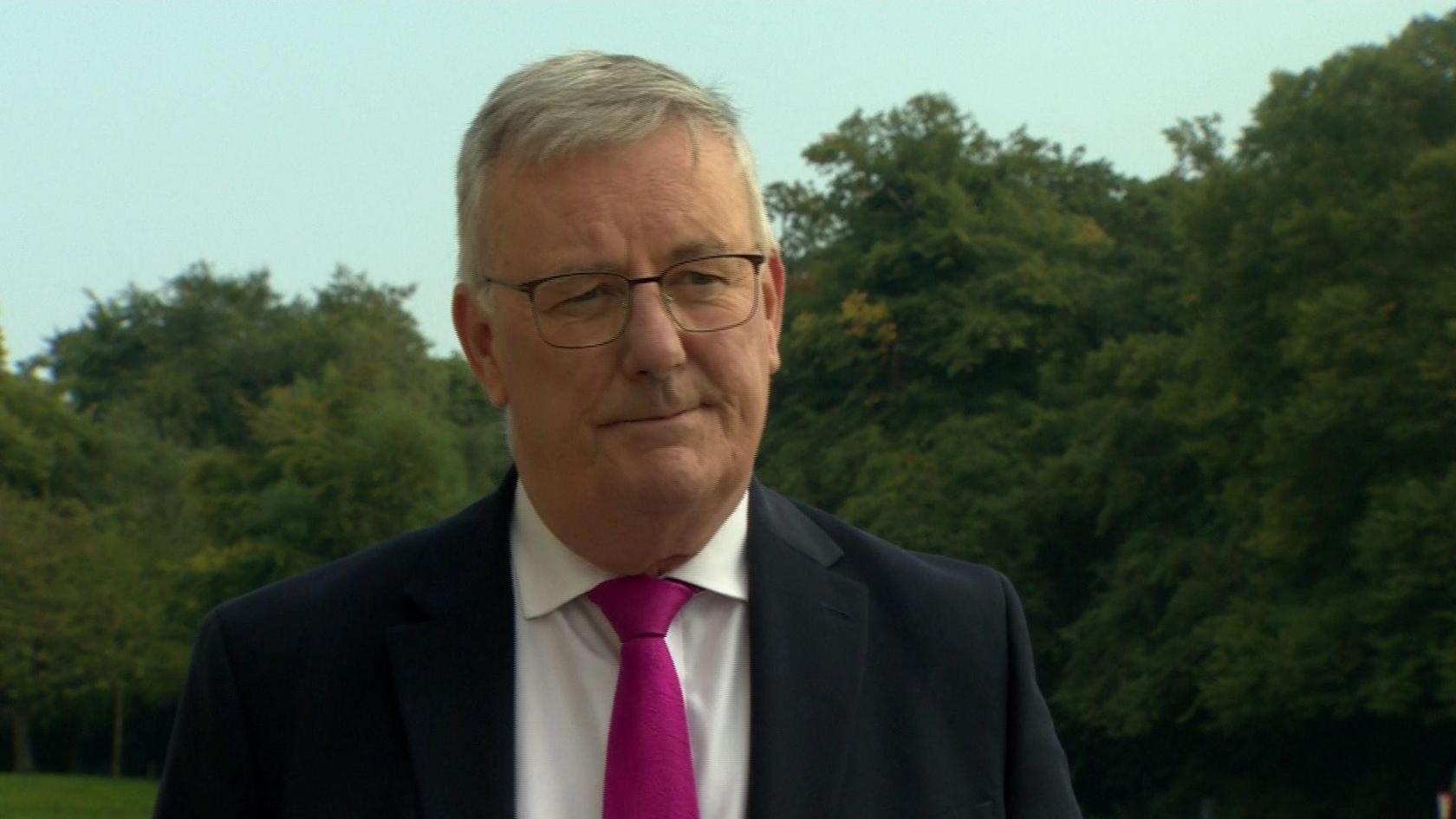Winter fuel payments in NI to be means tested

From this autumn, those not on pension credit or other means-tested benefits will no longer get the annual payments
- Published
The communities minister has confirmed Stormont will be following Westminster's lead when it comes to winter fuel payments for pensioners.
Last month, the Chancellor Rachel Reeves announced the payments of up to £300 would become means tested in England and Wales, and would only be given to those on certain benefits.
In a written statement to the assembly, Gordon Lyons said while he did not agree with the move, Stormont would be maintaining parity with the rest of the UK.
"Regrettably there is no additional resource available in the budget to allow us to diverge from the UK Government decision," he said.
'Total opposition to this decision'

Communities Minister Gordon Lyons said the lack of consultation by the UK Government with the NI Executive has been 'extremely disappointing'
From this autumn, those not on pension credit or other means-tested benefits will no longer get the annual payments, worth between £100 and £300.
Section 87 of the Northern Ireland Act 1998 generally means that social security benefits are paid at the same rates and with the same conditions of entitlement across the UK.
Any deviation from this principle of parity that results in additional expenditure in Northern Ireland must normally be paid by central government in what is known as a block grant.
The Treasury block grant accounts for more than 90% of the funding used for the day-to-day operation of services in Northern Ireland. The rest is raised locally from property taxes and other charges.
"The estimated additional cost to the Block Grant of maintaining universal entitlement to a Winter Fuel Payment in Northern Ireland for Winter 2024/25 is £44.3 million," Mr Lyons said in a statement.
He said a letter signed by all Northern Ireland Ministers has been sent to the Prime Minister "voicing deep concerns and urging him to reconsider".
"I have made clear to the Secretary of State for Work and Pensions my total opposition to this decision and outlined the detrimental impact it will have on many people in Northern Ireland," Mr Lyons added.
'36,000 older people in relative poverty'
Age NI Chief Executive, Linda Robinson, said: “Age NI is profoundly disappointed at the decision by the NI Executive to means test Winter Fuel Payment. This decision, we believe, will leave so many older people not receiving the vital help they need to stay warm this winter.''
''There are 36,000 older people in Northern Ireland living in relative poverty and 22,000 in absolute poverty. We are calling on the Communities’ Minister to urgently publish the Anti-Poverty Strategy and identify how they will support older people who will now be at greater risk of poverty and in need of extra help this winter.''
The Northern Ireland director of Engage with Age, Eamon Quinn, told BBC Radio Ulster's Evening Extra programme ''the reality will be that older people will have to make more decisions in relation to heating their homes or eating properly.''
''We're dealing with people who are on some of the worst pension rates in Europe. We work with over 200 groups of older people in Belfast and those older people routinely tell us about people they know, in the colder months, who spend most of their time in bed because it's the warmest place in their house.
''We know pensioners that sit on the Glider service and travel from west to east and east to west for most of the day because the Glider happens to be warm.''
How do winter fuel payments work and what's changing?
Winter fuel payments were created in 1997 to help everyone above state pension age with their winter heating bills
The chancellor announced that winter 2024 will be the first time pensioners will not be eligible for the payment
Instead, the payments will be restricted to those on benefits and pension credit
Pension credit is a form of means-tested benefit, which means it's based on income and savings
To be eligible for pension credit you need to be above state pension age and have an income of less that £218.15 a week or less than £332.95 as a joint weekly income with your partner
Your savings will also be taken into account and could mean you're still ineligible even if your income is low
You may still be eligible despite these factors if you're disabled, care for someone or have housing costs
'Very reluctant decision'

Health Minister Mike Nesbitt was part of the executive who signed off on the decision
Health Minister Mike Nesbitt was asked about the decision to cut the payments while speaking at a press conference where he announced he would become the new UUP leader.
As a minister he was part the executive who signed off on the decision "very, very reluctantly." he said.
"Nobody was happy about that, it was a very reluctant decision by each and every member of the executive," Mr Nesbitt added.
SDLP MLA Mark H Durkan said the executive "had the power not to introduce this punitive and punishing measure in the North but didn't take it - now thousands of pensioners will suffer as a result."
He added the executive had "repeatedly shown themselves incapable of taking a decision and this is just the latest example.
"It will not be lost on people that after weeks of confusion and concern from our older community that this was announced," Mr Durkan continued.
People Before Profit MLA Gerry Carroll warned the minister this will "cause excess deaths amongst pensioners".
“This is a cruel and unforgivable attack on some of our most vulnerable,” he said.